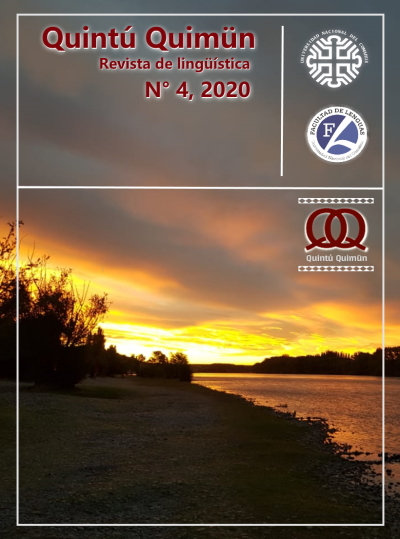International Criminal Court judgments: a preliminary analysis of the use of performative verbs
Main Article Content
Abstract
Much has been said and written about the characteristics of legal texts and, especially, about their performative nature. In this article, we have taken the contributions made by Austin (1991), Solan & Tiersma (2005), Janigová (2011) and Dunn (2003), among others, in order to analyze the performative nature of an opinion delivered by the International Criminal Court which was used by the students at the Universidad Nacional de La Plata in their translation professional practice. Our aim is to look at how veredictive and exercitive verbs are used in this document as a way to help the translation task, given that we believe that this type of analysis is of the utmost importance if we want to maintain the illocutionary force of the source text. We hope that this is just the first of many contributions in connection with this type of texts, which are yet to be explored, as our students work with them in their professional practices.
Downloads
Article Details
Los autores de los artículos publicados conservan los derechos de copyright.
Licencia de uso:

Creative Commons Atribución-NoComercial-CompartirIgual 4.0 Internacional.
References
Amorebieta y Vera, J., J. Esposito y S. Naciff. “Las funciones del lenguaje en las sentencias penales (español – francés – inglés)”. Temas de discurso público e interacción, Isolda E. Carranza y Mariana Cucatto, Editoras, Editorial de la Universidad Nacional del Sur, Bahía Blanca. ISBN 978-987-655-103-8, págs. 141-164.
Austin, John. (1991) Cómo hacer cosas con palabras: palabras y acciones. Barcelona: Paidós, 1ra. Edición.
Danet, Brenda. (1980) “Language in the Legal Process”. Law & Society Review. Vol. 14, No. 3, Contemporary Issues in Law and Social Science (Spring, 1980), pp. 445-564.
Dunn, Pintip H. (2003) “How Judges Overrule: Speech Act Theory and the Doctrine of Stare Decisis”. Yale Law Journal,113(2) oct 2003, 493-531. DOI: 10.2307/3657527
Fiorito, Lorenzo. (2006) “On Performatives in Legal Discourse”. Metalogicon, XIX, 2, pp 101-112.
International Criminal Court. (2016) SITUATION IN THE CENTRAL AFRICAN REPUBLIC, IN THE CASE OF THE PROSECUTOR v. JEAN-PIERRE BEMBA GOMBO. ICC-01/05-01/08-3399 21-06-2016 1/47 EC T.
Janigová, Slávka. (2011) “Speech-acts focus of dynamic equivalence in legal translation”. SKASE Journal of Translation and Interpretation [online]. 2011, vol. 5, no. 1 [cit. 2011-03-28]. Available on web page <http://www.skase.sk/Volumes/JTI05/pdf_doc/05.pdf>. ISSN 1336-7811.
Kurzon, Dennis (1986). It is hereby performed… Explorations in legal speech acts. Amsterdam/Philadelphia: John Benjamins Publishing Company.
Prieto Ramos, Fernando. (2011) “Developing Legal Translation Competence: An Integrative Process-Oriented Approach” Comparative Legilinguistics - International Journal for Legal Communication, 2011, vol. 5, pp. 7-21. Disponible en: https://archive-ouverte.unige.ch/unige:16166.
Schane, Sanford. (2016) “Contract formation as a speech act” en: Tiersma & Solan (eds.) The Oxford Handbook of Language and Law. Oxford: OUP, 2016 (2012). Cap. 7
Searle, John. (1999) Expression and meaning. Studies in the Theory of Speech Acts. Cambridge: CUP, 1999 (1979).
Solan, L. & P. Tiersma. (2005) Speaking of Crime. The Language of Criminal Justice. Chicago: The University of Chicago Press.
